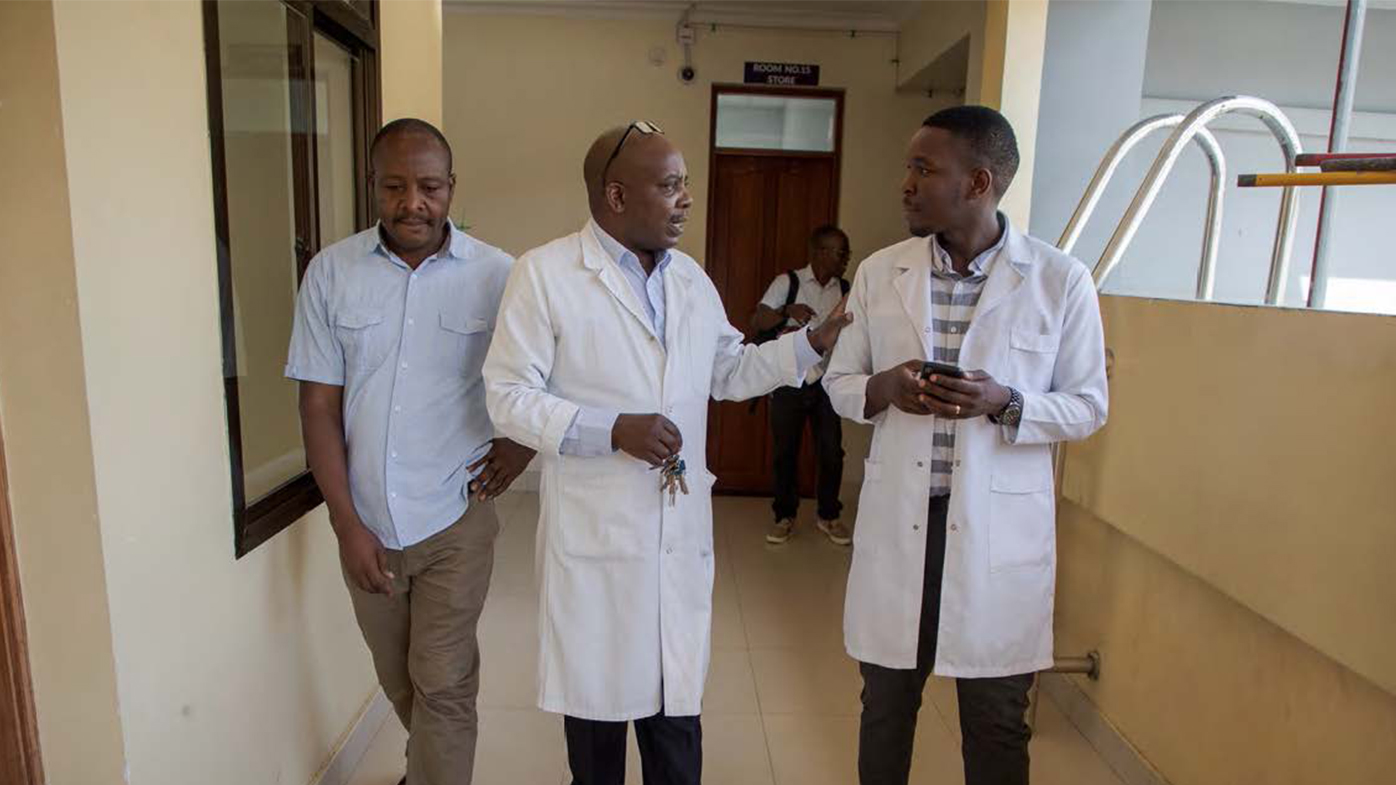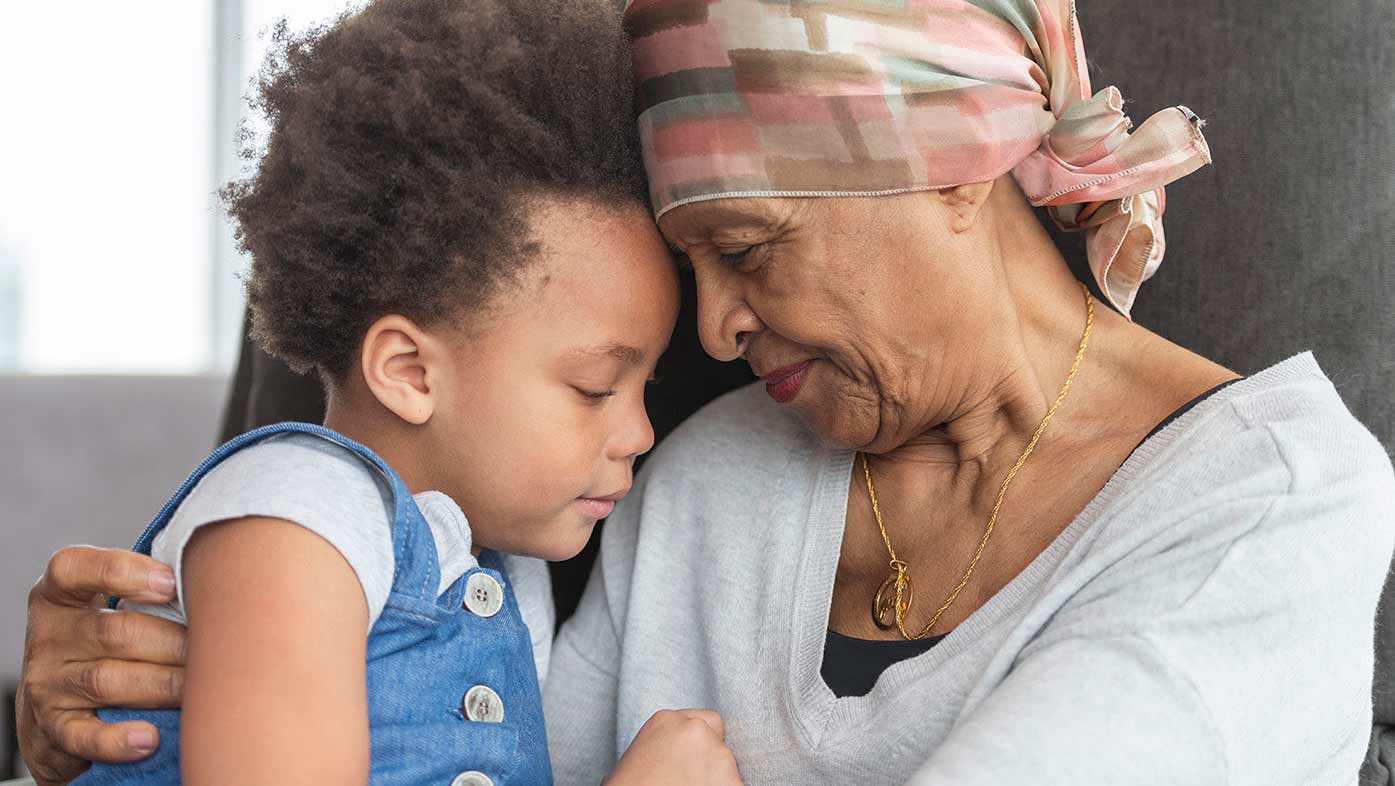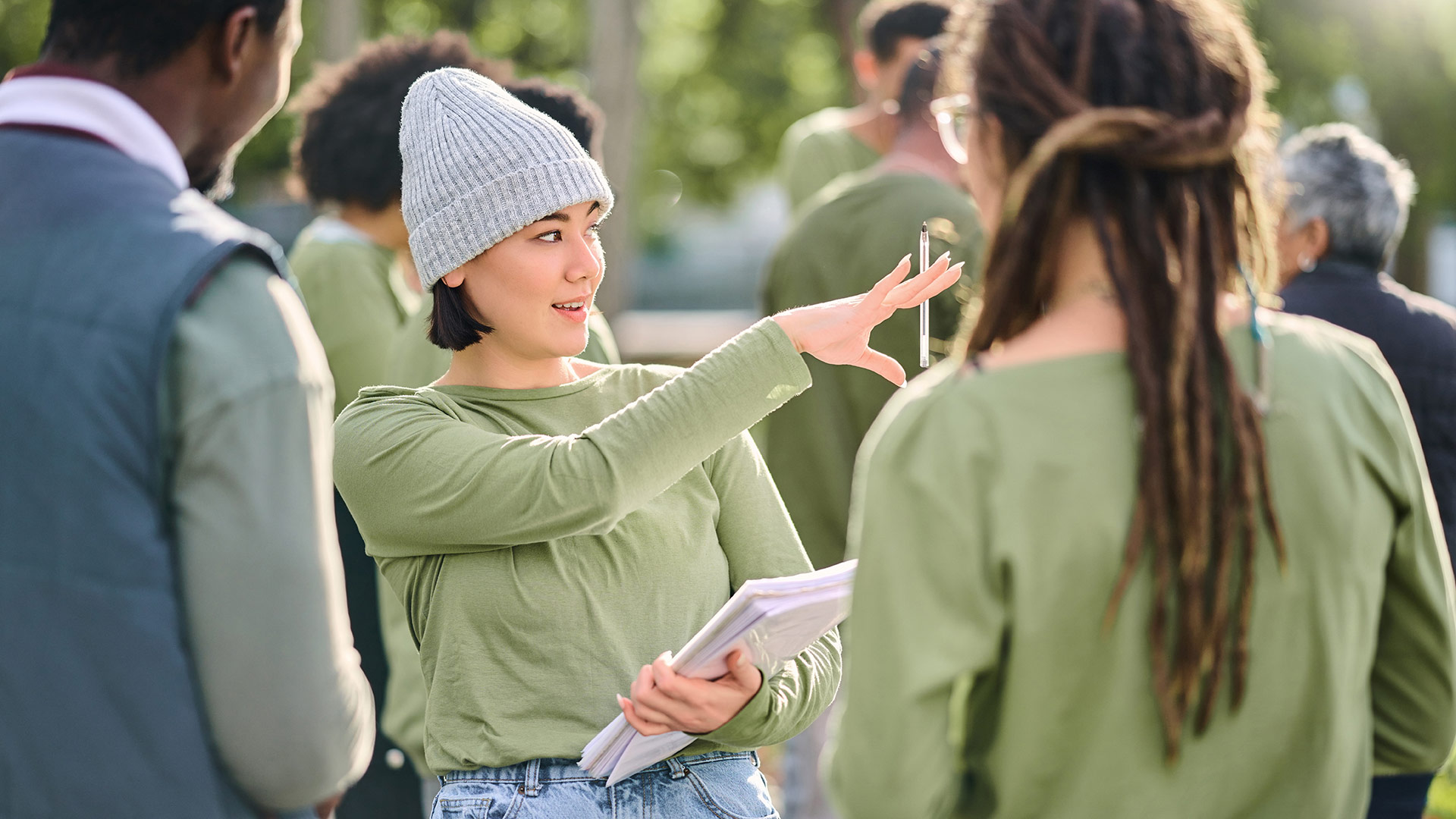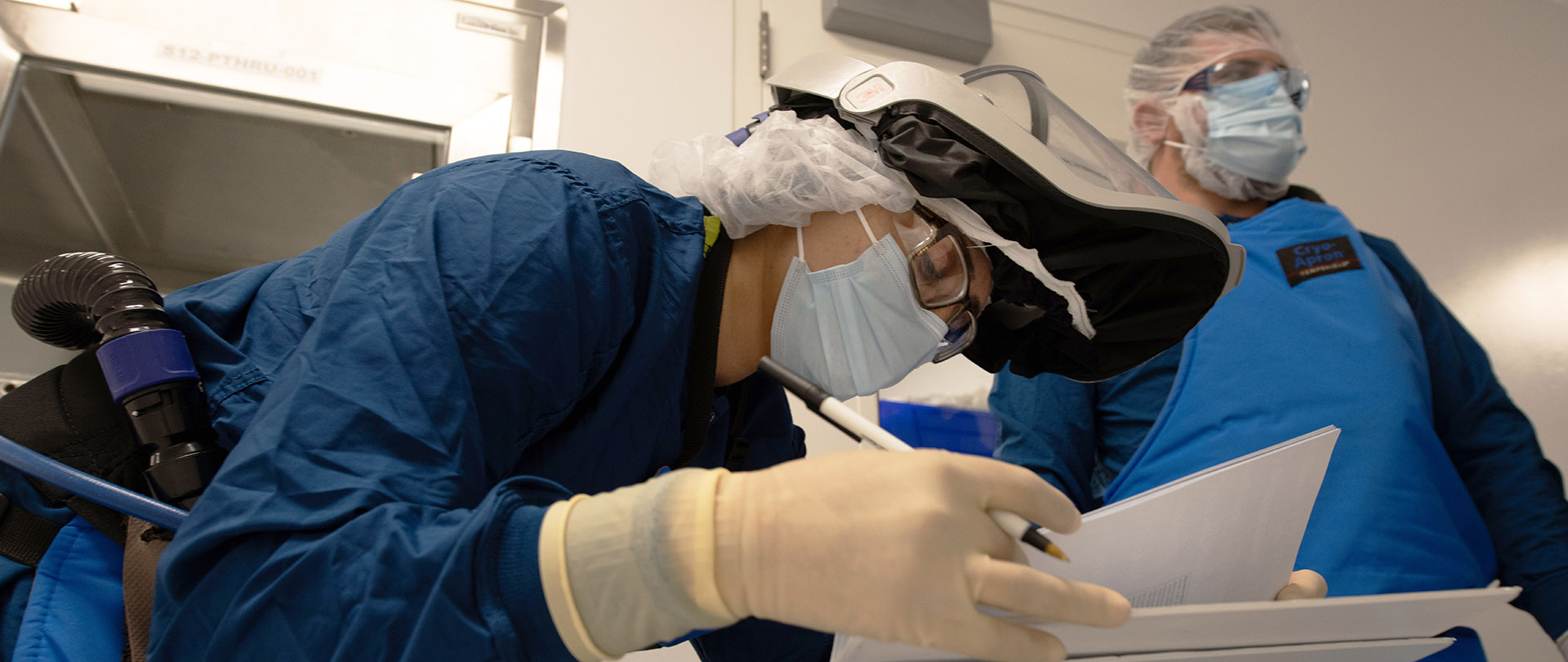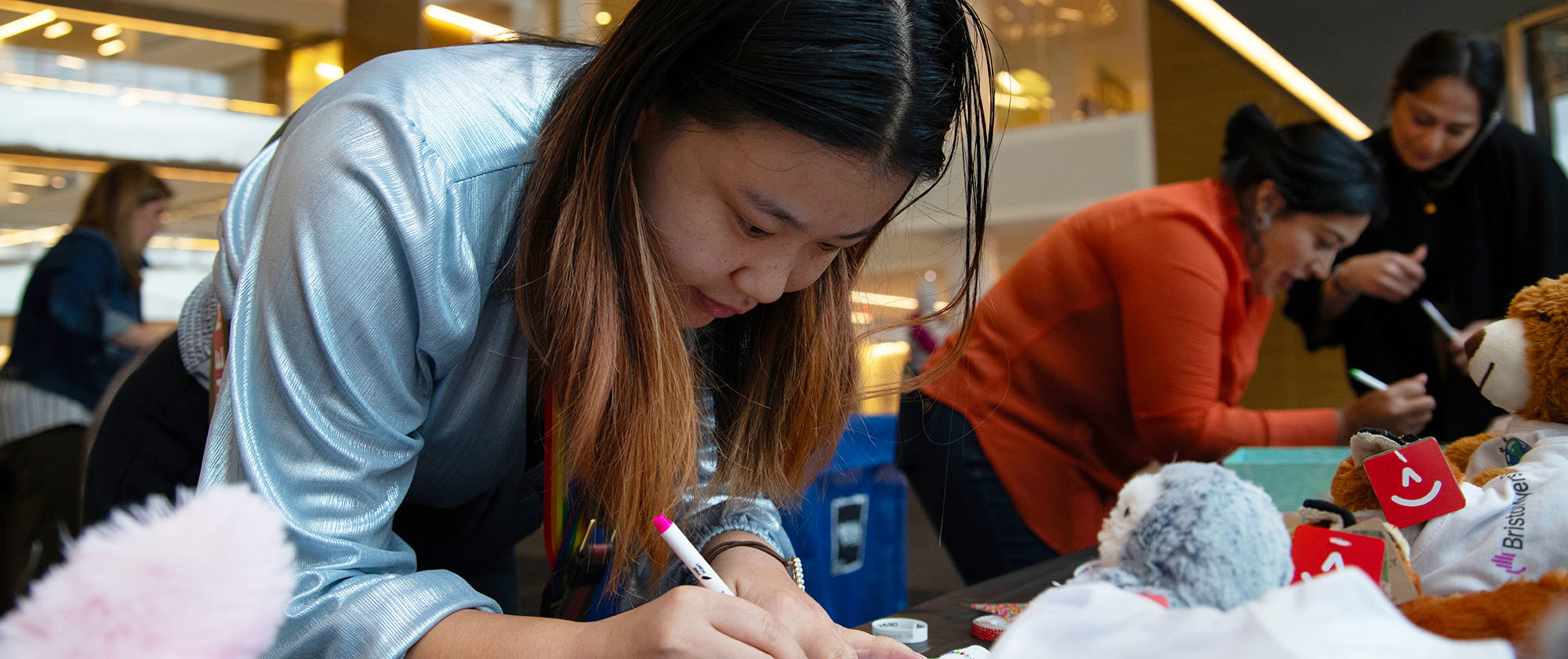Patrick Lamotte usually works at Bristol Myers Squibb in Braine-L’Alleud, Belgium, as a global clinical trial manager. During the Easter holiday, however, he worked as a volunteer for several days at a nursing home in Brussels to support healthcare professionals in the fight against COVID-19. Now that the holidays are over, he still volunteers there several hours a week.
Intended for U.S. Audience
Belgium employee, a trained nurse, volunteers during COVID-19
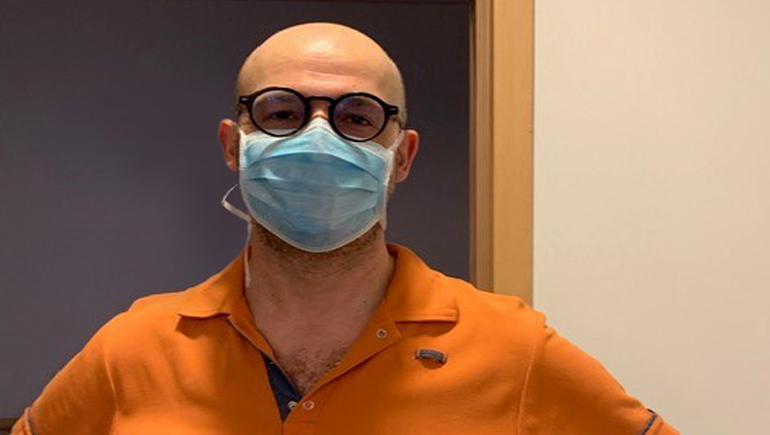
Patrick Lamotte volunteers at a nursing home to help healthcare workers during COVID-19.
Before he made a career move to the pharmaceutical industry, Lamotte was an intensive care and radiotherapy nurse for 15 years. With the outbreak of the COVID-19 pandemic, he wanted to make a difference and, besides sewing masks, he registered as a nurse volunteer on the Iriscare platform, a public interest organization for social welfare in Brussels. On April 13, he began as a volunteer to lend a helping hand at a nursing facility in Sint-Joost-ten-Noode.
‘’The work we do at BMS is always in the best interest of patients, and when the coronavirus hit Belgium, it awoke the nurse in me and I decided to take an active role in the care of COVID-19 patients,” Lamotte said.
His first day of volunteering coincided with the start of COVID-19 screenings in nursing homes throughout the country. He was tested for the virus first and then briefed by the nurse-in-chief and Doctors Without Borders. “The situation was quite chaotic on my first day because all the staff had to be organized and newcomers had to be trained for the screening,” he recalled. “I was then grouped with a nurse and an occupational therapist and we went to test the residents.”
Just like numerous other nursing homes in the country, the one in which Lamotte volunteers faces many challenges because of COVID-19. Floors must be reorganized to create containment areas, residents must be moved and the workforce has to be organized to avoid unnecessary circulation and the risk of the virus spreading from floor to floor. Despite the strict health measures and additional hygiene precautions, the staff is trying to keep daily life for residents as normal and serene as possible.
“The hardest part for the residents is obviously having visits from family and friends suspended; unfortunately, a lot of them are feeling very lonely,” Lamotte pointed out. “But there is a great feeling of solidarity among the staff. Despite the noticeable fatigue, there is an overwhelming sense of motivation and enthusiasm.”
However, the risk of becoming infected with the virus still exists – even when Lamotte takes all possible precautions: “You have to think about it first, of course. A discussion within the family is essential, and we concluded that although my volunteering was a risk, it was a calculated one that was worth taking,” he related.
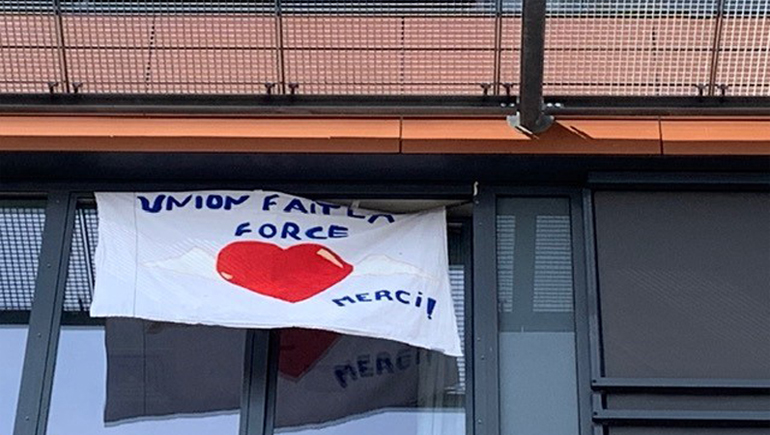
A hand-painted sign hanging from the balcony at the nursing home where Patrick Lamotte volunteers reads, “Unity makes us strong. Thank you.”
All volunteers and staff at the nursing home follow hygiene measures to the letter. They wear gloves and masks at all times and must use additional protection when treating residents who are infected. “We wash our hands constantly and when I return home, I take a long shower as well,” Lamotte explained. “Another very important element is to monitor possible symptoms, such as a cough or a fever, and to immediately inform the nursing home staff if you have any of them.”
Before volunteering during this crisis, Lamotte needed authorization from his managers and had to make a commitment to self-quarantine for 14 days when his volunteer work in the nursing home was complete. He received company approval two days following his request. “I am very thankful for the speedy process, as it allowed me to help in the nursing home as soon as possible,” he said.
Lamotte is now volunteering several hours a week and works on a team with other healthcare professionals to battle the spread of COVID-19. He said it was an easy decision for him to volunteer, given his professional background and training as a nurse. “I believe we all have a role to play in our community and I want to be an active part of it, especially in times of crisis.
“Although I work for the good of patients, I don't always have the opportunity to be in the field, which is something I sometimes miss,” he said. “Thanks to volunteering, I can combine the best of two worlds; working for BMS and volunteering are complementary in my opinion. Moreover, it's a unique opportunity for me to work in times of crisis. I give up my free time, but I learn a lot. It's a win-win.”
BMS policy permits colleagues to volunteer within certain parameters and subject to local laws and regulations.
